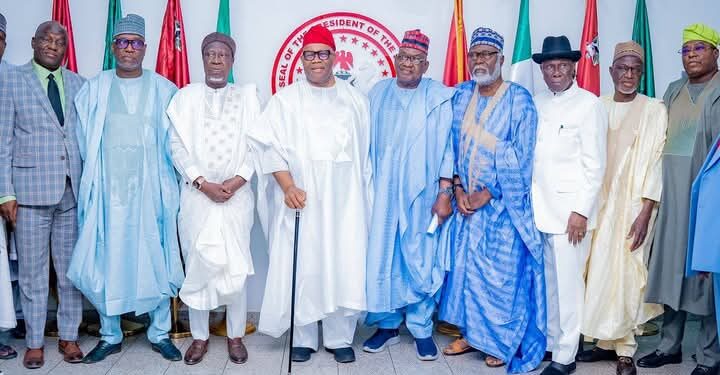BY ABUBAKAR YUSUF
In anything you do in life ,and anywhere you find yourself, the need to live a lasting legacy is desiring and beyond imagination.
For the Engr Ahmed Kadi Amshi FNSE, the immediate past Chairman , National Assembly Service Commission NASC and his commissioners , the legacy of service in all ramifications was adored everywhere.
For five consecutive years, Kadi and his commissioners has changed the narratives of activities at the National Assembly Service Commission NASC and the National Assembly NASS, particularly as it boarders on employment status and tenure of the career civil servants in the National Assembly Service that was hitherto tinkered along with political undertone.
The normalisation and regularisation of service years of the National Assembly technocrats has doused the needless tension surrounding the ascension to the top echelon of the National Assembly along with other colleagues .
The positive development under the five year term of Engr Ahmed Kadi Amshi FNSE and his commissioners brought to a halt frequent lobby that normally characterised appointments in the National Assembly to a seamless exercise.
In five years, Kadi appointed three Clerks to the National Assembly CNA’s, a decision that had discouraged sit tight syndrome, encouraged service delivery, brought sanity to the system and had become a rallying point in line with the civil service rules .
The appointments of Arch Amos Olatunde Ojo, Sani Magaji Tambawal and now Barrister Kamoru Ogunlana in a row signified the ascension and tenure of a thorough bred technocrat, administrator, bureaucrat and well groomed Nigerian and his commissioners who were able to take the nations democratic hub to greater heights.
The change of service years prevalent during his assumption of duty five years ago and attempt to tinker with the normal order was resisted by the immediate past leadership and management of NASC that brought a new lease of life.
Again , worried by the inadequate accommodation , staff development both at NASC and NASS, Kadi provided a lasting solution through the construction of a historic office complex for the National Assembly Service Commission NASC on a plot provided by the government over the decades ago, to resolve the gap of communication, synergy of work at NASC and NASS.
He frowned at the continuous occupation of a rented apartment by such a strategic government agency and deployed all his time in service to ensure a befitting accommodation for the service , as well as improved staff development, to enable them deliver on the needs of Nigerians.
Even though, the Multi Billion Naira edifice has been under construction, when completed , the issue of paucity and inadequate accommodation would have been resolved in the next few years.
Kadi who bored out on Thursday, 6th , February, 2025 along with his commissioners except one , also took some strategic decisions while in the office that consolidated democratic governance from top to the sub- national levels.
During his term , he barely met a functional State Assembly Service Commission SASC as those in existence at not more than ten states, were merely administrators without financial autonomy, as it was operational at the federal level, through the placement on first line charge of the National Assembly Service Commission NASC.
Awareness were carried out through a yearly organisation of Seminars , Workshops, Symposiums among many other programs to educate state governors , members of the State Assembly Service Commission SASC to educate them on their roles at the state level .
The maiden program during the Ahmed Kadi Amshi led NASC was held in Port Harcourt, and subsequently in Kaduna and Abuja that consolidated awareness and reorientation, advocacies to improve on the services of the commission and provided needed freedom to the State Assembly Service Commission SASC.
He created a lasting synergy, strategy and working relationship between NASC and SASC that led to enrollment and establishment of 34 states, State Assembly Service Commissions SASC’s as members , with two remaining states putting up an administrative machinery to join the rest ones.
While pleading on behalf of the current 34 states members of the State Assembly Service Commission SASC, he appealed to the state governments not to only guarantee administrative autonomy, but inclusive of financial autonomy that had improved the services of the State Assembly Service Commission SASC at the state levels , hence consolidating democratic rules.
With the establishment of State Assembly Service Commission SASC in 34 states , the independent of both the executive, legislative and the commission was guaranteed, with robust interface at all levels.
The laudable policies of the Engr Ahmed Kadi Amshi FNSE led National Assembly Service Commission NASC, had left an indelible mark on the sands of time along with his commissioners between 2020-2025 and going forward.
Written BY ABUBAKAR YUSUF on yus.abubakar3@gmail.com.











